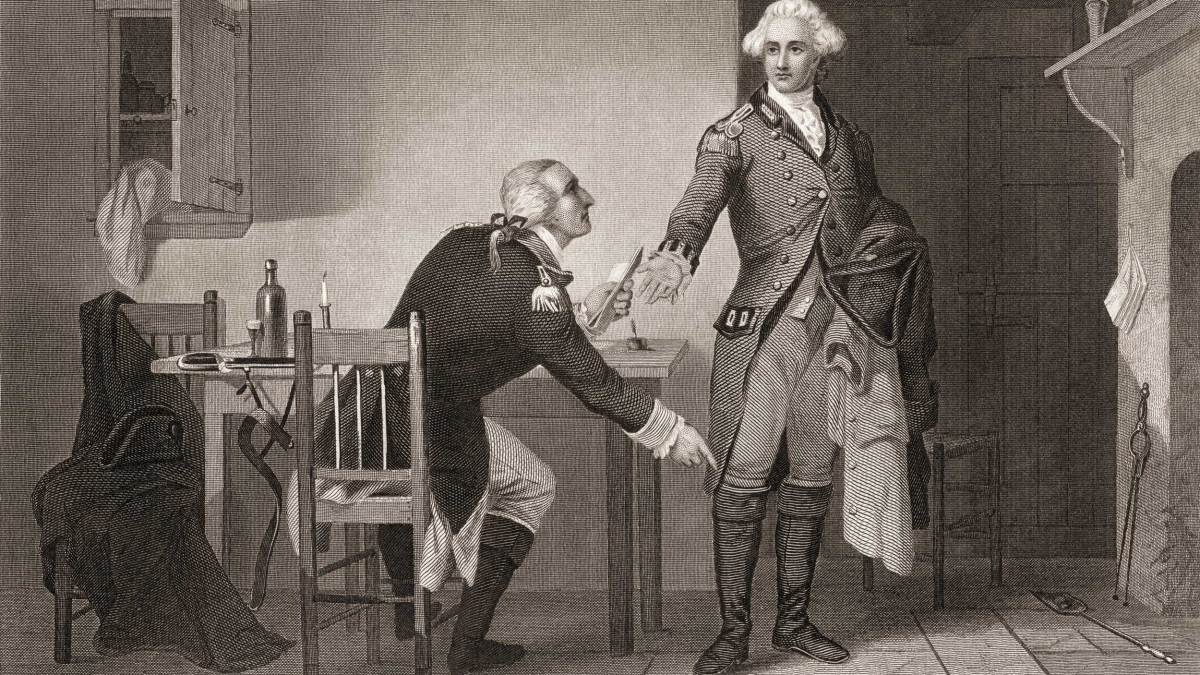About Publications Library Archives
heritagepost.org

Preserving Revolutionary & Civil War History

Preserving Revolutionary & Civil War History

Author: Edmund Pendleton
Date:1780
Annotation:
Toward the end of 1780, morale within the Continental Army reached a low point. Troop strength fell to just 6000, and many officers threatened to resign over unpaid wages and inadequate supplies. In September, one of the frustrated officers–Benedict Arnold (1741-1801)–switched to the British side.
Earlier in the war, Arnold had been one of the country’s most respected and successful military leaders. In 1775, he led 1100 American soldiers into Canada and suffered a serious leg wound in the unsuccessful American siege of Québec. In 1776 he distinguished himself in a American naval battle on Lake Champlain and played a pivotal role in forcing the British surrender at Saratoga in 1777.
Arnold, however, also suffered severe disappointments. In 1777, he was passed over promotion, even though he had more seniority than any of the five men Congress named as major generals. The next year, when Arnold was in command in Philadelphia, the executive council of Pennsylvania accused him of using military personnel to perform personal favors. A court-martial cleared Arnold, but ordered George Washington to reprimand him.
Angry at his country’s ingratitude, Arnold, who was now in command of West Point, agreed to surrender the post to the British commander Sir Henry Clinton. The capture of British Major John André, who was carrying papers sent by Arnold to Clinton, exposed Arnold’s treachery. Arnold fled to British protection while André was hanged. Emigrating to England with his wife, he was shocked to find that he was regarded as anything but a hero.
To generations of patriots, Arnold stood as the antithesis of George Washington: He was a man who lacked the moral virtue to resist British offers of 10,000 pounds sterling and a generalship. In the following selection, Edmund Pendleton (1721-1803), a leading Virginia jurist who later served in the Continental Congress and as Virginia’s governor, views the uncovering of Arnold’s treachery as a sign that God favored the American cause. Thomas Paine held a similar view: “I see so many chances the Treason had of succeeding and every chance opposed by an uncontrived something, that I almost feel myself a Predestinarian.”
Document:
The story we have of Genl. Arnold’s corruption is indeed shocking to humanity, & I wish much to know the utmost consequence of the discovery, as they are manifest & proper to be made public, for I know you too well ever to ask you to reveal even to me what your duty, or the interest of the states requires to be kept secret, and I know myself I would not desire it of any one. This I wish to gratify curiosity…. Providence in bringing this secret mischief to light just as it was on the point of completion, has given another instance of its kind interposition in favour of our just cause, which I hope will rouse all its favourers from the apathy from which alone our enemies can hope for success.
Source: Gilder Lehrman Institute